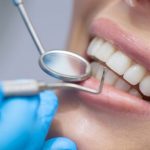Vaping and Your Teeth: The Surprising Impact of ECigarettes on Oral Health

Vaping has become increasingly popular in recent years, touted as a safer alternative to smoking traditional cigarettes. However, as with any new trend, there are potential risks and consequences that come with it. One of the most surprising impacts of e-cigarettes that has been discovered is its effect on oral health. While many people may not be aware of the impact that vaping has on teeth and gums, it’s important to understand the potential harm it can cause and take preventative measures to protect oral health. The use of e-cigarettes and vaping products has increased significantly in recent years, particularly among young adults and teenagers. While traditional cigarettes are known to have harmful effects on oral health, many people assume that vaping is a safer alternative. However, research has shown that the chemicals and ingredients in e-cigarettes can have a negative impact on teeth and gums, including increased risk of tooth decay, gum disease, and other oral health issues. As the popularity of vaping continues to rise, it’s important to understand the potential consequences and take steps to protect oral health for both short and long term.
Vaping is the act of inhaling and exhaling the vapor produced by an electronic cigarette or similar device. The vapor is created by heating a liquid, often called e-juice or vape juice, which typically contains nicotine, flavorings, and other chemicals. The popularity of vaping has grown significantly in recent years, especially among younger adults and teenagers. Advocates of vaping often tout it as a safer alternative to traditional cigarette smoking, claiming that it produces fewer harmful chemicals and is less harmful to overall health. However, studies have shown that vaping can still have negative effects on oral health, including damage to teeth and gums.
The purpose of the article \Vaping and Your Teeth: The Surprising Impact of E-Cigarettes on Oral Health\ is to provide a comprehensive overview of the lesser-known adverse effects of e-cigarettes on dental health. The article highlights the alarming statistics and research-based evidence that associate vaping with a host of oral health concerns such as tooth decay, gum disease, oral cancer, and bad breath. Additionally, the article aims to educate the readers about the potential risks of e-cigarettes and bust the myth of its supposed safety compared to traditional cigarettes. Overall, the article emphasizes the need for individuals to be aware of the consequences of vaping on oral health and make informed decisions to safeguard their dental wellbeing.
How Vaping Affects Teeth

Vaping has been marketed as a safer alternative to traditional smoking, but recent studies have shown that it can still have negative effects on oral health. Specifically, vaping can lead to dry mouth, which is a common cause of tooth decay and gum disease. When the mouth is dry, it produces less saliva, which is important for neutralizing acids in the mouth and washing away harmful bacteria. Without enough saliva, the pH balance in the mouth becomes acidic, creating an environment where harmful bacteria can thrive. This can lead to tooth decay, gum disease, and even tooth loss. Additionally, the heat from vaping devices can cause damage to the gums and soft tissues in the mouth, leading to inflammation and, in some cases, infection. Another way that vaping can affect teeth is through the ingredients in e-cigarette liquids. Some of these ingredients, such as propylene glycol and glycerin, can break down into acids when heated, which can erode tooth enamel over time. Additionally, the flavorings used in e-cigarettes can also be harmful to teeth. Many of these flavorings contain sugar, which can feed harmful bacteria in the mouth and contribute to tooth decay. Others contain acidic compounds, which can also erode tooth enamel. While the long-term effects of vaping on oral health are still being studied, it is clear that it is not a risk-free alternative to smoking. It is important for vapers to be aware of the potential risks and take steps to protect their oral health, such as practicing good oral hygiene and visiting the dentist regularly.
E-cigarettes contain a variety of chemicals that can have harmful effects on teeth and gums. The liquid used in e-cigarettes, also known as e-juice, typically contains nicotine, propylene glycol, and glycerin. Nicotine is a highly addictive substance that can cause vasoconstriction, reducing blood flow to the gums and teeth. Propylene glycol and glycerin are both humectants, which can dry out the mouth and lead to a decrease in saliva production. This decrease in saliva can cause an increase in bacteria and plaque buildup, leading to tooth decay and gum disease. Additionally, some e-juices contain flavorings and other chemicals that have not been thoroughly studied and may have unknown effects on oral health. Overall, the chemicals in e-cigarettes can have significant negative impacts on teeth and gums, and users should take steps to mitigate these risks.
Vaping has been marketed as a safer alternative to traditional smoking, but recent studies have shown that this practice can still have damaging effects on oral health. Vaping exposes the mouth to high levels of heat, chemicals, and nicotine, which can cause tooth decay and gum disease. The liquid used in e-cigarettes can also contain harmful chemicals that may increase the risk of oral cancer. Additionally, the act of vaping can cause dry mouth, which can lead to bad breath and other oral health issues. It’s important for individuals who vape to be aware of these potential risks and to take steps to protect their oral health, such as practicing good oral hygiene and scheduling regular dental check-ups.
When it comes to the impact of vaping versus smoking on oral health, there are some key differences to consider. While smoking has long been known to have a negative impact on oral health, with increased risk of gum disease, tooth loss, and oral cancer, the effects of vaping are still being studied. However, some studies have suggested that vaping can also have negative effects on oral health, including dry mouth, inflammation, and an increased risk of gum disease. Additionally, the chemicals in e-cigarette liquids can cause damage to the teeth and gums, and the heating element in the device can lead to damage to the oral tissues. Overall, while vaping may be seen as a safer alternative to smoking, it is important to be aware of the potential risks to oral health and take steps to protect your teeth and gums.
Vaping and Bad Breath
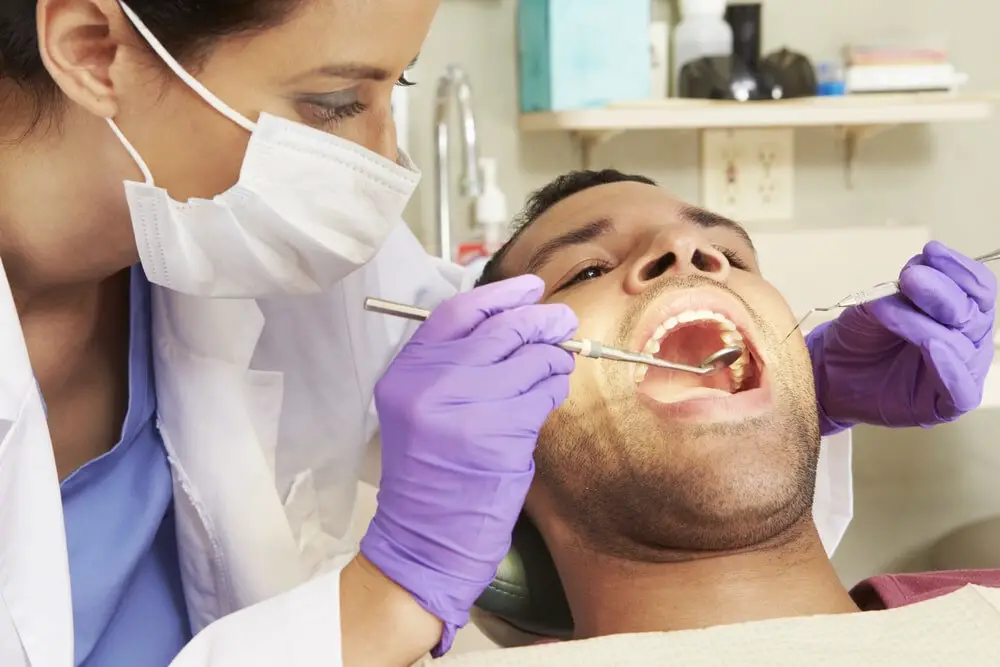
Vaping has gained tremendous popularity in recent years. It is a relatively new trend that has been marketed as a safer alternative to traditional smoking. However, vaping can still have a negative impact on your oral health, including bad breath. This is because many e-cigarettes contain nicotine, which is a known cause of bad breath. Nicotine reduces saliva production, which can lead to dry mouth. When the mouth is dry, bacteria can flourish, causing bad breath. Additionally, vaping can lead to the buildup of plaque and bacteria in the mouth, which can also contribute to bad breath. Many people believe that vaping is a healthier alternative to smoking and that it does not pose any significant risk to their oral health. However, this is not entirely true. Vaping can still cause bad breath and other oral health problems, such as tooth decay and gum disease. It is essential to maintain proper oral hygiene and visit the dentist regularly to prevent these issues. Additionally, it is crucial to choose e-cigarettes that are free of nicotine and other harmful chemicals to reduce the risk of bad breath and other oral health problems. By taking care of your oral health, you can enjoy the benefits of vaping without compromising your overall well-being.
Vaping is often considered a healthier alternative to traditional smoking, but it can still cause bad breath. The vapor from e-cigarettes contains chemicals that can dry out the mouth and reduce saliva production. Saliva is important for washing away bacteria and food particles that can cause bad breath. Additionally, some e-liquids contain flavorings that leave an unpleasant odor in the mouth. The nicotine in e-cigarettes can also contribute to bad breath by reducing blood flow to the gums, which can lead to gum disease and other oral health problems. While vaping may be less harmful than smoking, it’s important to be aware of its potential impact on oral health and take steps to maintain good hygiene habits.
The link between vaping and dry mouth is a growing concern in the world of oral health. Vaping, or the use of electronic cigarettes, can cause a decrease in saliva production, which can lead to dry mouth. This lack of saliva can create an environment in the mouth that is ideal for the growth of bacteria, which can cause bad breath and other oral health problems. Additionally, many e-cigarette liquids contain high levels of sugar, which can further contribute to the growth of harmful bacteria in the mouth. It is important for users of electronic cigarettes to be aware of the potential impact on their oral health and take steps to mitigate the risks, such as staying hydrated and practicing good oral hygiene habits.
Vaping is gaining popularity as an alternative to smoking cigarettes, but it’s not without its risks. One of the most common side effects is bad breath or halitosis. To reduce the risk of bad breath while vaping, it’s essential to maintain good oral hygiene. Brushing your teeth twice a day, flossing, and using mouthwash can help remove any bacteria or residue left in your mouth from vaping. Additionally, staying hydrated by drinking plenty of water can keep your mouth moist and reduce the risk of bad breath. Finally, choosing a vape juice with a lower nicotine content can also help reduce the risk of bad breath. By following these tips, you can continue to enjoy vaping while maintaining good oral health.
Protecting Your Oral Health While Vaping
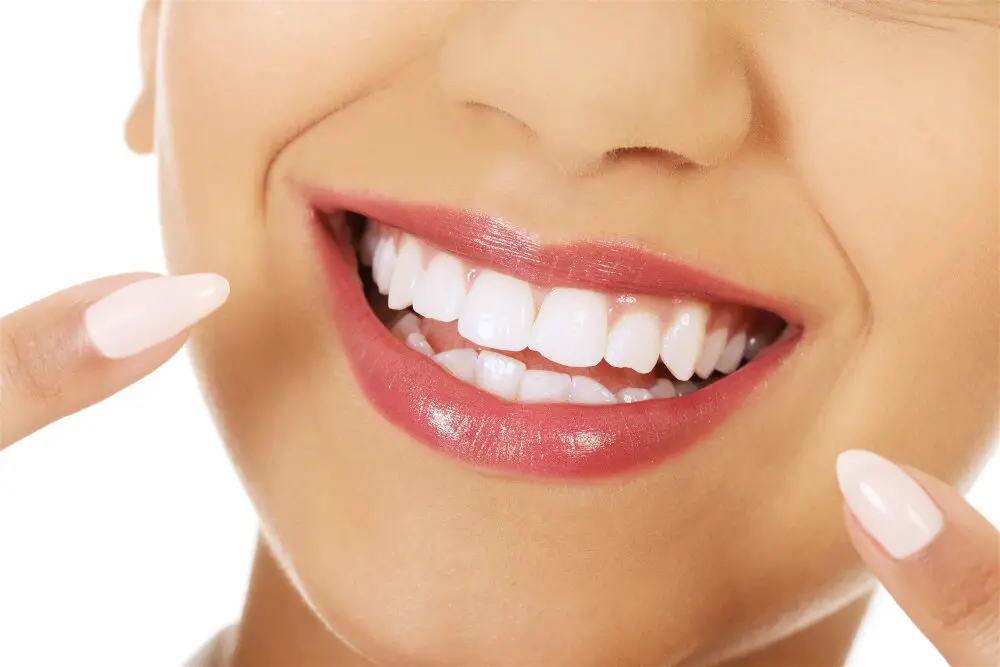
Vaping has become increasingly popular in recent years as a substitute for traditional smoking, but it is not without its risks. While vaping may seem like a healthier alternative to smoking, it can still have a negative impact on your oral health. The e-liquids used in vaping devices contain a blend of chemicals that can damage teeth and gums over time. The nicotine in these liquids can cause gum recession, tooth decay, and bad breath. Additionally, the heat generated by vaping devices can dry out the mouth, leading to an increase in bacteria and a higher risk of oral infections. To protect your oral health while vaping, there are several steps you can take. One of the most important is to maintain good oral hygiene by brushing and flossing regularly. This will help remove any plaque or bacteria that may build up in your mouth. You should also visit your dentist for regular check-ups and cleanings. Your dentist can monitor the health of your teeth and gums and spot any potential problems early on. Additionally, you can switch to e-liquids that contain less nicotine or are nicotine-free. This can help reduce the risk of gum recession and tooth decay. Finally, you can try using a mouthwash or chewing sugar-free gum to help keep your mouth moist and fresh.
Maintaining good oral hygiene while vaping is essential for overall health. Vaping can cause dry mouth, which can lead to bad breath, gum disease and tooth decay. To prevent these issues, it is recommended to drink plenty of water to stay hydrated and chew sugar-free gum. Brushing twice a day and flossing daily can also help remove any buildup from vaping and reduce the risk of oral health problems. Additionally, it is important to schedule regular dental check-ups to ensure any problems are caught early and treated promptly. By taking these simple steps, vapers can maintain good oral hygiene and enjoy a healthy smile.
Regular dental checkups are of utmost importance for vapers due to the adverse effects of e-cigarettes on oral health. Although vaping is considered as a safer alternative to smoking, it can still cause dry mouth, bad breath, and inflammation of the gums, which can lead to periodontal disease and tooth loss. Additionally, vaping liquids contain high levels of nicotine, which can cause the constriction of blood vessels, reducing blood flow to the gums and increasing the risk of oral infections. Regular dental checkups can detect and treat any oral health issues at an early stage, preventing them from getting worse and ensuring healthy teeth and gums. Therefore, vapers should prioritize dental checkups to maintain their oral health and prevent any long-term damage caused by vaping.
Vaping can have a significant impact on dental treatments, such as implants and braces. The nicotine and chemicals found in e-cigarettes can delay the healing process of dental implants, as they restrict the blood vessels and reduce the amount of oxygen that reaches the implant site. Additionally, vaping can cause dry mouth, which can increase the risk of gum disease and tooth decay, especially for those wearing braces. The metal wires and brackets of braces can trap the harmful chemicals from e-cigarettes, leading to discoloration and decay of the teeth. Therefore, it is crucial to discuss vaping habits with your dentist and take necessary precautions to maintain your oral health while using e-cigarettes.
The Future of Vaping and Oral Health
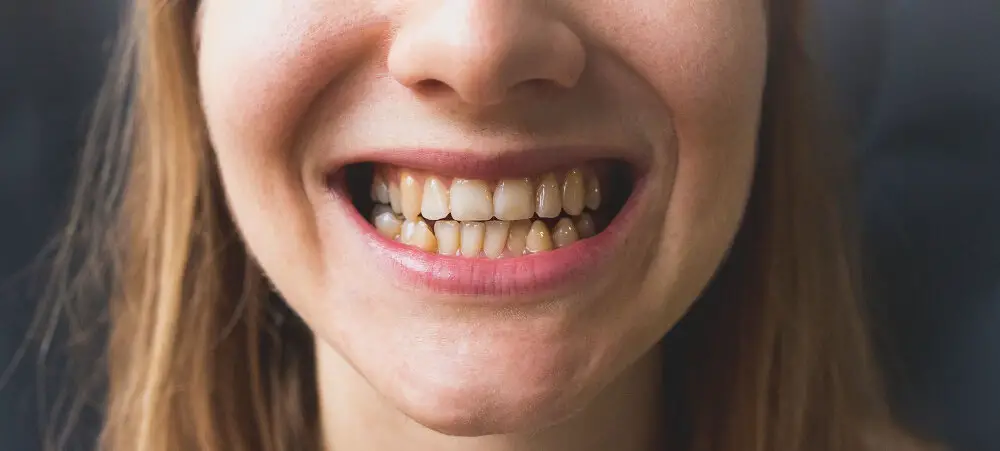
As vaping continues to gain popularity, concerns about its impact on oral health have become increasingly prevalent. Although many people believe that vaping is a safer alternative to smoking, research suggests that it may still have negative effects on the teeth and gums. One major issue is the fact that many vaping liquids contain high levels of nicotine, which can cause dry mouth and reduce saliva production. Saliva is essential for maintaining a healthy mouth, as it helps to neutralize acids and wash away bacteria. When saliva production is reduced, the mouth becomes more susceptible to decay and gum disease, which can lead to tooth loss and other serious complications. Another concern is the potential for vaping devices to cause oral injuries. Many vapers use devices that require them to inhale deeply, which can cause burns and other injuries to the lips, tongue, and throat. In addition, some studies have suggested that the metal coils used in vaping devices can release toxic chemicals when heated, which may also have negative effects on oral health. Overall, it is clear that vaping can have a significant impact on oral health, and it is important for individuals who use these devices to be aware of the potential risks. By taking steps to maintain good oral hygiene and seeking regular dental care, vapers can help to minimize the negative effects of vaping on their teeth and gums.
Ongoing research into the impact of vaping on oral health has revealed some concerning findings. While vaping has been touted as a safer alternative to smoking traditional cigarettes, it is not without its drawbacks. The aerosol produced by e-cigarettes can cause dry mouth, which in turn can lead to an increase in oral bacteria and a higher risk of tooth decay and gum disease. Additionally, the nicotine found in vaping products can restrict blood flow to the gums, leading to a higher risk of oral infections. As vaping continues to gain popularity, it is critical to understand its impact on oral health and take steps to mitigate any potential harm.
As vaping continues to grow in popularity, concerns about its impact on oral health have surfaced. While traditional cigarettes have long been known to cause dental problems, the potential risks of vaping are only beginning to be understood. However, some potential new technologies or products could help reduce the negative impact of vaping on teeth and gums. For example, toothpaste or mouthwash containing ingredients specifically designed to counteract the effects of vaping could help to prevent damage. Additionally, advancements in the design of vaping devices, such as those with lower temperatures or reduced emissions, could also help to minimize the risk of oral health problems. As research continues in this area, it is likely that even more innovative solutions will emerge.
The article \Vaping and Your Teeth: The Surprising Impact of E-Cigarettes on Oral Health\ explores the lesser-known negative effects of vaping on oral health. The article discusses how vaping causes dry mouth, which can lead to an increase in bacteria and plaque buildup, resulting in tooth decay and gum disease. Additionally, the chemicals in e-cigarettes can cause discoloration of teeth and damage to the enamel. The article also highlights the misconception that vaping is a safer alternative to smoking and urges individuals to be aware of the potential harm it can cause to their oral health. Overall, the article emphasizes the importance of maintaining good oral hygiene and consulting with a dentist to address any concerns related to vaping.
If you’re a vaper, it’s time to start prioritizing your oral health. While many people believe that e-cigarettes are a safe alternative to smoking, recent studies have shown that vaping can have a significant impact on your teeth and gums. E-cigarettes contain nicotine, which can lead to gum disease and tooth decay. Additionally, the heat from vaping can dry out your mouth, leading to a decrease in saliva production and an increase in bacteria growth. So, if you want to keep your smile healthy and bright, it’s important to take steps to protect your oral health. This may include cutting back on vaping, drinking plenty of water, and visiting your dentist regularly for check-ups and cleanings. Don’t wait until it’s too late to start taking care of your teeth and gums – prioritize your oral health today!
In conclusion, it is crucial to understand the risks of vaping for oral health. While e-cigarettes may seem like a safer alternative to traditional tobacco products, they still pose a significant threat to oral health. The chemicals in e-liquids can lead to dry mouth, gum disease, tooth decay, and even tooth loss. Additionally, the high temperatures involved in vaping can cause damage to the delicate tissues in the mouth. It is important for individuals who vape to be aware of these risks and take proactive measures to protect their oral health, such as practicing good oral hygiene and scheduling regular dental check-ups. Ultimately, the key to maintaining healthy teeth and gums is to make informed decisions about our overall health and well-being, including our choice of nicotine delivery systems.
Conclusion
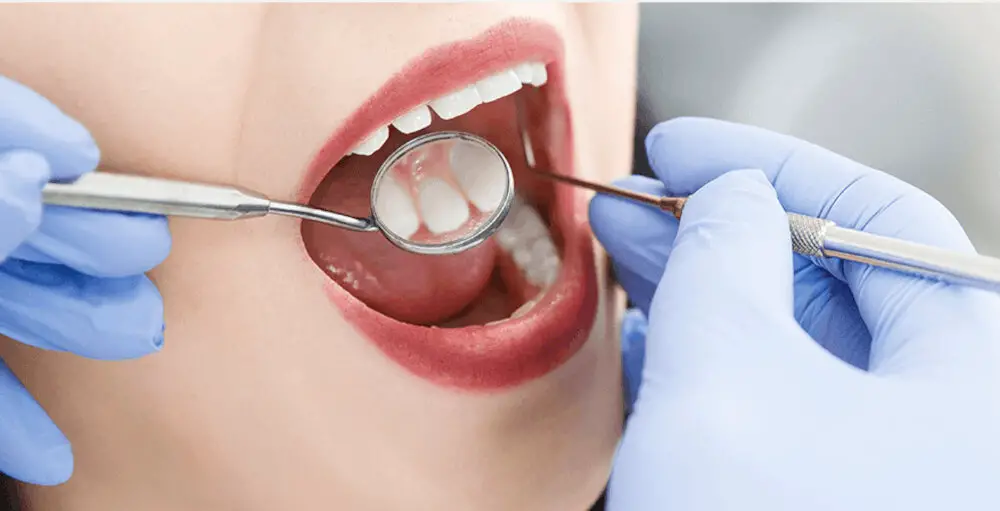
In conclusion, the impact of vaping on oral health is a complex and multi-faceted issue. While some studies suggest that vaping may have less of an impact on teeth than traditional smoking, there is still cause for concern. The nicotine and other chemicals in e-cigarettes can still cause damage to the gums and teeth over time, and the act of vaping itself can lead to dry mouth and other oral health issues. It is important for individuals who choose to vape to be aware of the potential risks and to take steps to protect their oral health, such as maintaining good oral hygiene and scheduling regular dental check-ups. As the use of e-cigarettes continues to grow in popularity, it is critical that further research is conducted to fully understand the impact of vaping on oral health and overall well-being.






